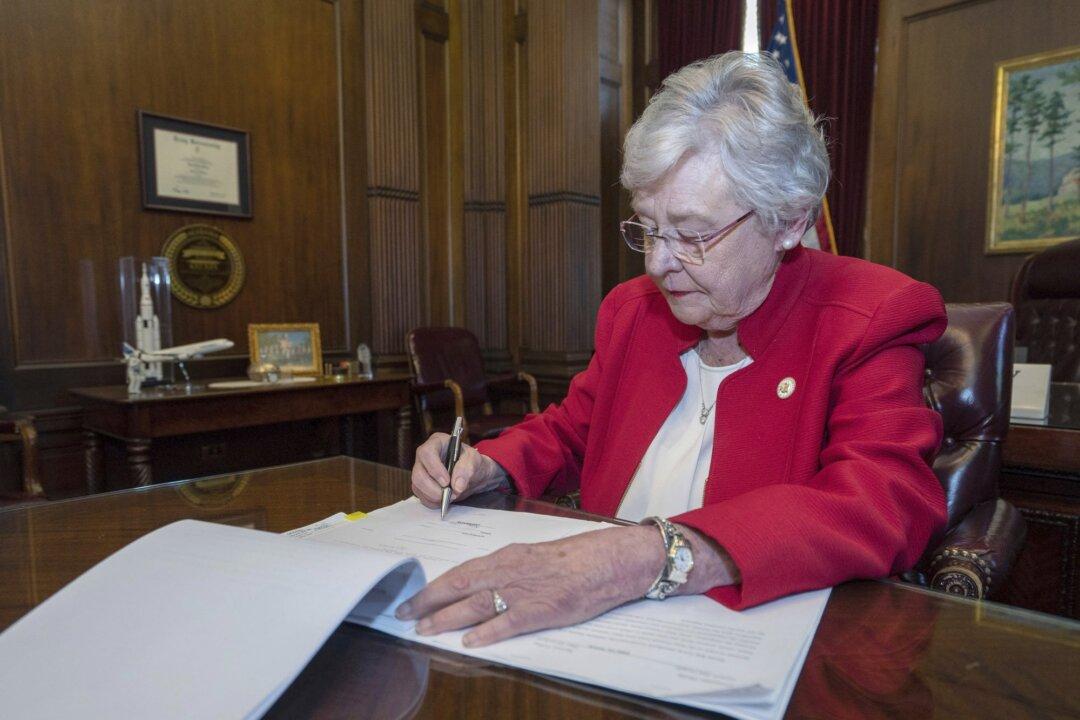Alabama’s governor said that the new abortion bill she recently signed into law reflects the value residents place on the sanctity of life.
Gov. Kay Ivey was asked about the new law after a news conference about the state tourism industry on May 20.

Alabama’s governor said that the new abortion bill she recently signed into law reflects the value residents place on the sanctity of life.
Gov. Kay Ivey was asked about the new law after a news conference about the state tourism industry on May 20.